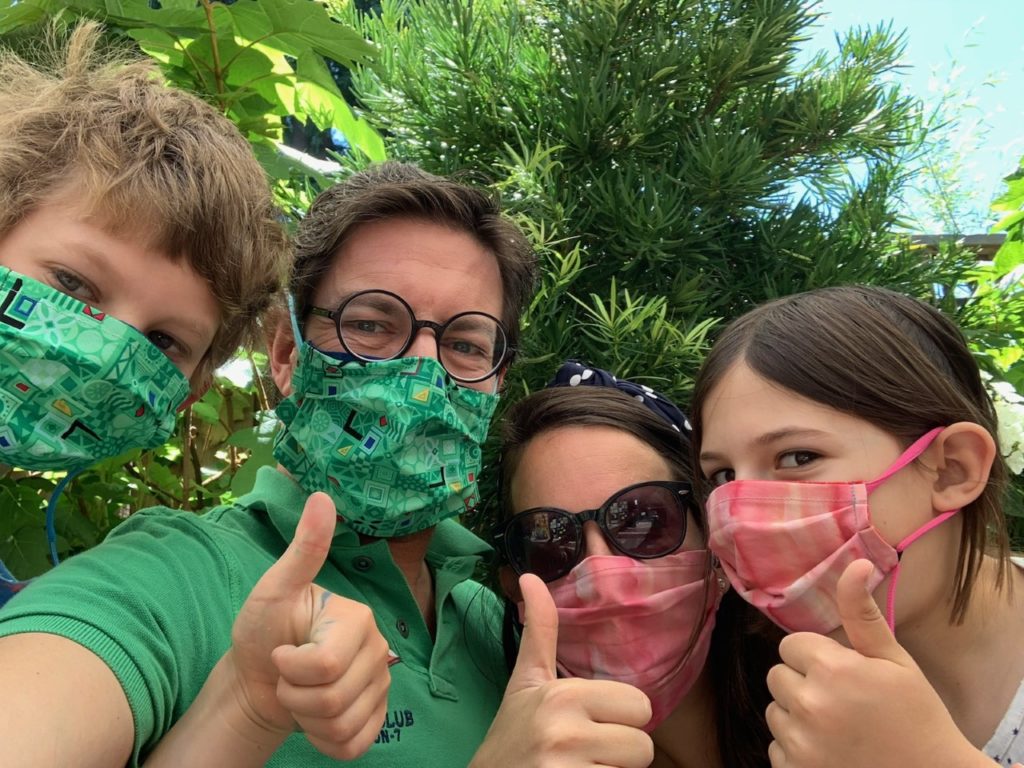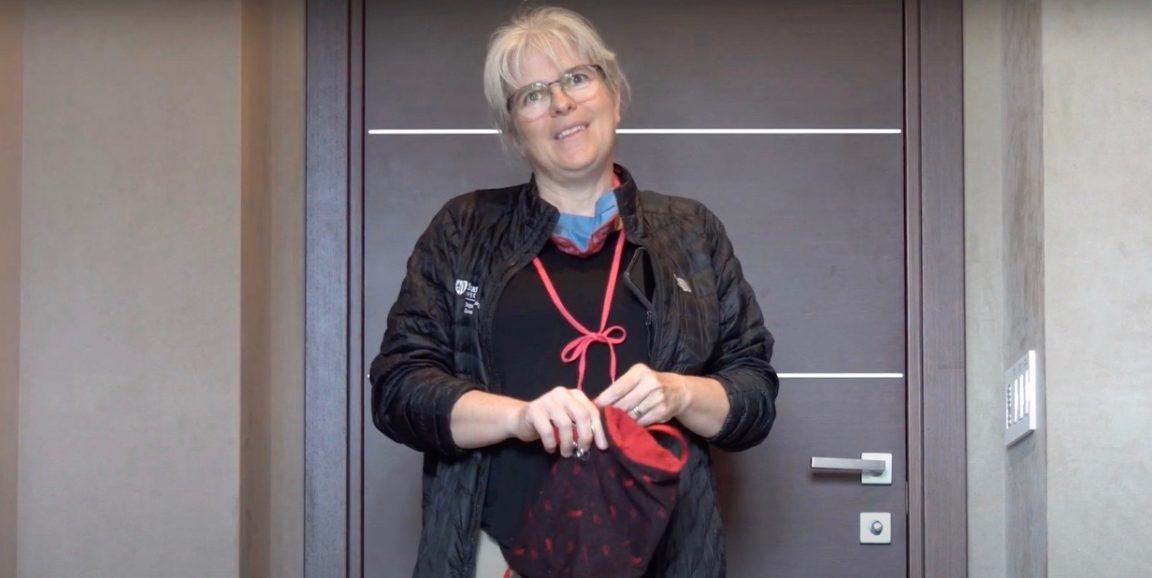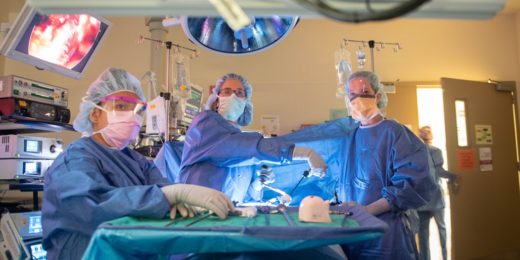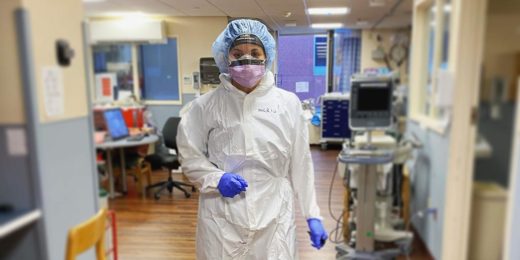Early in the COVID-19 pandemic, Stanford pediatric surgeon Janey Pratt, MD, found herself with time on her hands.
In March, Stanford Medicine temporarily delayed elective surgeries to create additional capacity in case of a COVID-19 surge. With no operations scheduled, Pratt decided to put her suturing skills to use helping others: "I started taking orders from family and friends, and made masks for our clinic and office staffs," she told me.
Pratt learned the basics of sewing from her mother, and refined her craft in a high school home economics class.
"I wanted to take shop, but there was this bully who said I couldn't because I was a girl," Pratt said. "The skill has served me well. I don't do nice fancy stuff, but I'll make costumes for Halloween and plays -- whatever the kids needed."
She expected to sew maybe a couple dozen masks as she waited out the pandemic; instead, she created an organization dubbed Purissima Production Effort (PPE) after their location on Purissima Road. To date, her team has produced -- and given away for free -- more than 750 masks, not including a few for her granddaughter's baby dolls.
Meticulous design
Pratt approached her mask-making with the same meticulousness she brings to her surgeries.
"We tried a few designs first -- different patterns, different materials," she told me. "Eventually, we settled on a pattern that we like a lot and created both adult and kid masks."
Fabric came from a variety of sources, starting with two large bins of quilters' cotton from Pratt's mother's collection. They used straightened paper clips to create a flexible nose bridge; and they substituted shoestrings for elastic.

When a family friend joined Pratt's household to help homeschool her children, the friend brought along two sewing machines and all of her fabric. With no other guests expected, Pratt converted her formal dining area into a factory.
Her 7-year-old son Isaac started wearing noise-cancelling headphones, so he didn't have to hear the machines; and they worked on the nose pieces and other quieter tasks when he was logged into a Zoom call for his second-grade class.
Sixty-seven yards of fabric
Word about the effort got out, and people started donating material. One surgical resident offered fabric from Africa, and a tech from the Veterans Affairs Palo Alto Health Care System supplied San Francisco 49ers fabric so Pratt's team could make football-themed masks for his entire family.
When those supplies ran out, Pratt and her team purchased more -- about 67 yards total. Between materials and shipping, the project has cost about $3,000, she said, but she is happy to foot the bill for others' protection. "I wouldn't have been a very good business owner," Pratt laughed.
Her latest mask design is completely adjustable and fits close to the face -- "like an N95," she said. It's also reversible, can hang from your neck when not in use, and has a pocket for a disposable filter.
Stanford surgeon Dan Azagury, MD, gives Pratt's work rave reviews.
"I thought they were very well made," he said of the masks "Also I figured that -- as a surgeon -- she kind of knows what she's doing when it comes to 'surgical' masks!"
Producing cloth mitts
But Pratt didn't stop there. She noticed that people were using gloves incorrectly out in the community, contaminating them and then spreading the contaminants to other surfaces. So, she designed a cloth mitt to provide better protection. She explains how it works in a video on YouTube, filmed by her husband Gill. To date, they've created more than 100 mitts.
As masks become more available -- and Pratt returns to the operating room -- she says the Purissima Production Effort will probably slow down. But no request will ever be turned away.
"So long as we have friends and family and colleagues who need or want them," Pratt said, "we will keep making them."
Photos courtesy of Janey Pratt






